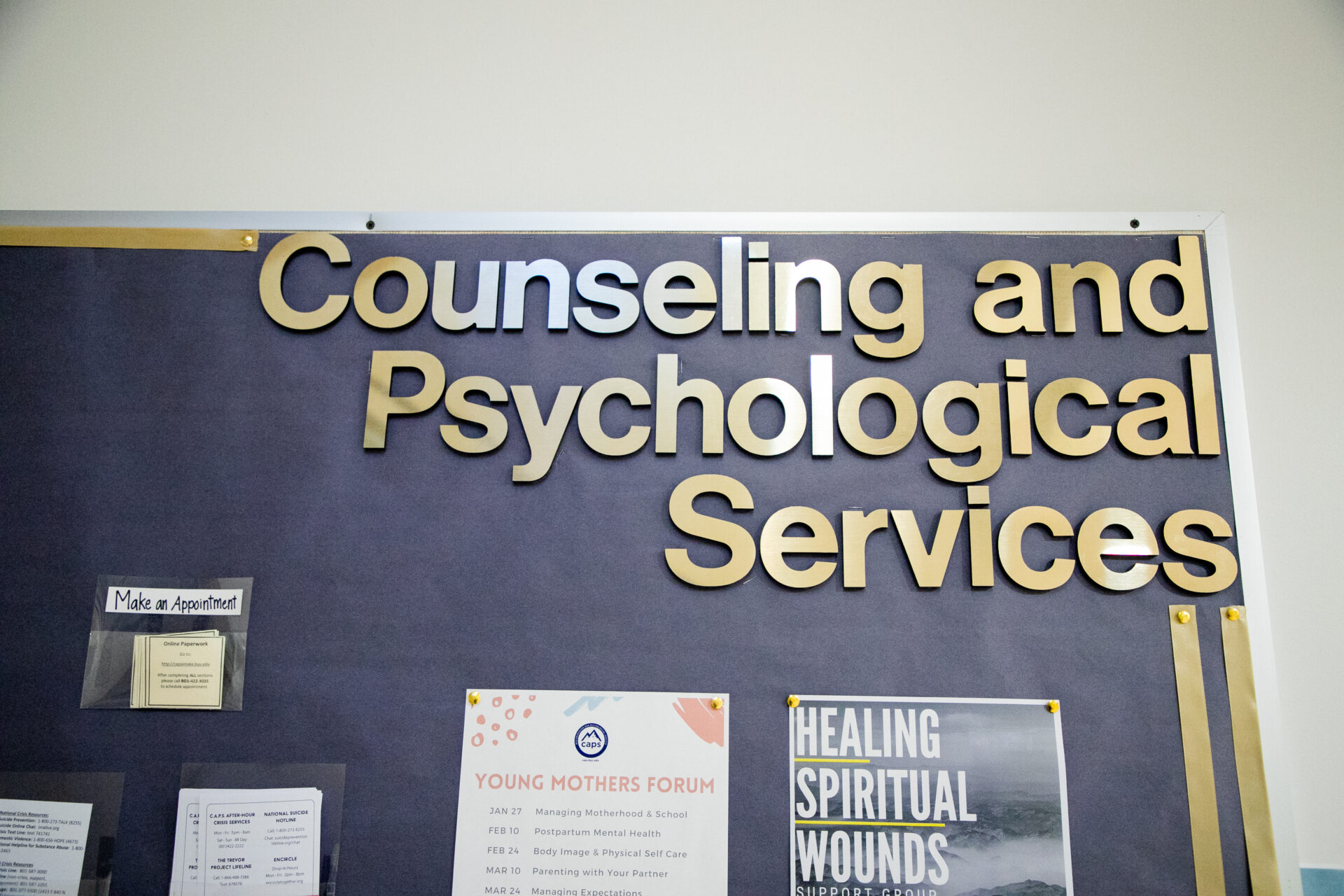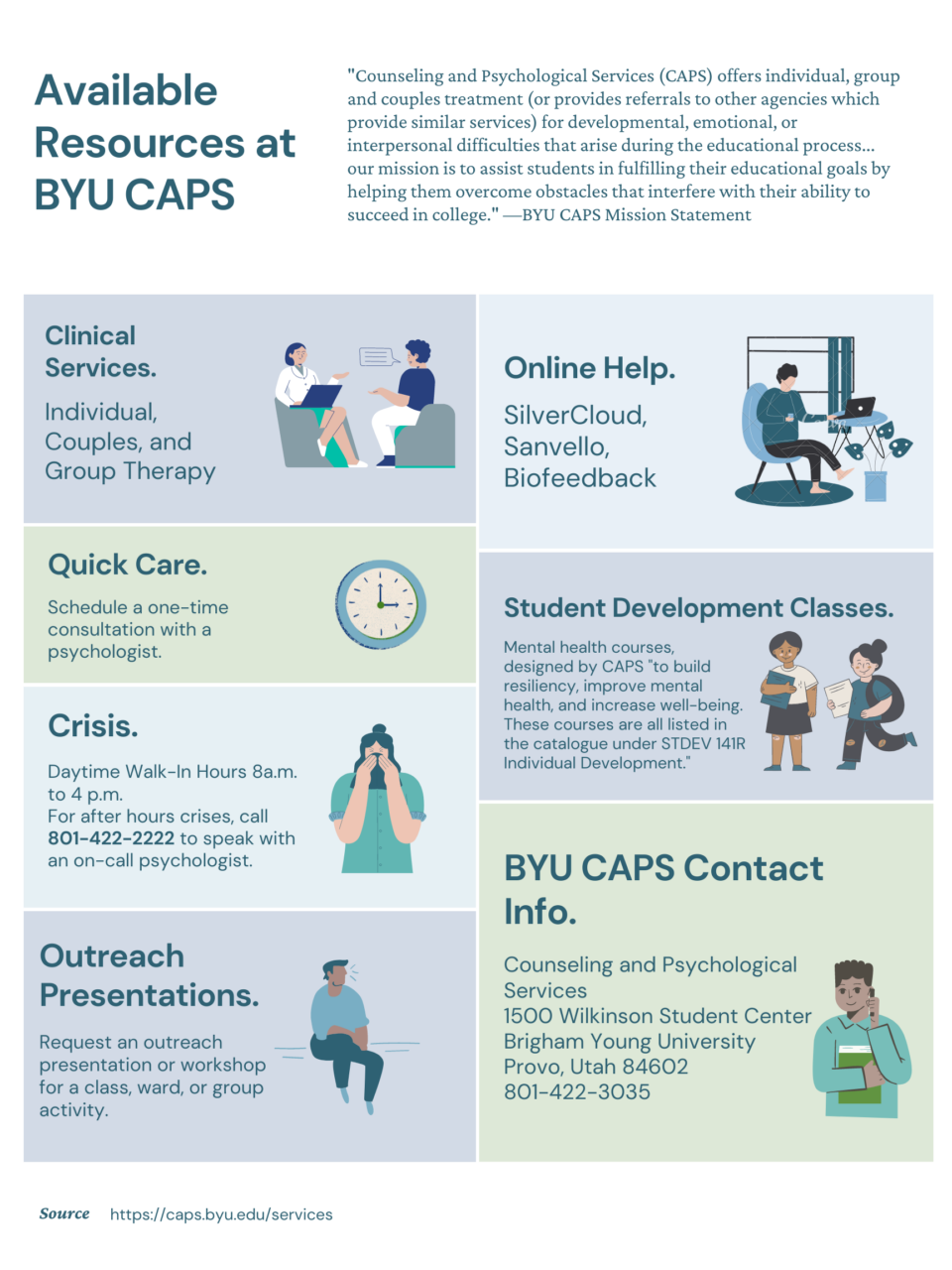
BYU’s Counseling and Psychological Services is offering options for free resources to full-time students in addition to their traditional counseling services.
While the BYU community may be aware of CAPS, they may not know of all the resources available to guide them through the mental health challenges accompanying busy class schedules, long work hours, past experiences and a global pandemic.
According to the National Institute of Mental Health, as of the year 2020, there were 52.9 million adults living with mental illness, and 30.6% of U.S. adults ages 18 to 25 had exhibited mental illness.
“The biggest thing we’ve noticed at BYU is just students feeling lonely now and more isolated because of the pandemic and just fatigue around online classes,” CAPS case manager Jenna Hillman said. “I think it has opened up maybe more conversations about mental health.”
In addition to the available counselors, CAPS also provides online programs such as Sanvello and SilverCloud, which are provided for free to full-time BYU students.

Sanvello is a meditation app that provides tips and guides for users to navigate anxiety and depression, while SilverCloud provides a more interactive experience.
According to CAPS, SilverCloud is an online program that offers four different focuses for mental health improvement: anxiety, stress, depression and body image. Depending on the chosen focus, students can complete modules remotely that will be reviewed by trained CAPS faculty and graduate students, who will then correspond with them digitally to discuss their progress.
Though traditional counseling and psychological services are always recommended, there are many benefits to these more personal resources for students who may be intimidated by the thought of meeting with a psychologist. However, if students demonstrate high levels of stress, they will still be encouraged to meet with a counselor as well.
Hillman said it is valid for people to feel intimidated by asking for help. “It’s vulnerable to open up to someone that you don’t know. And sometimes you don’t know how to explain how you’re feeling or what you’re going through,” she said.
Because of limited CAPS counselors and a high demand for counseling, the wait time for sessions with a psychologist can be up to two months. However, CAPS offers one-time consultations, walk-in hours and a hotline number for crisis situations.
For students who wish to meet with a counselor sooner rather than later, CAPS case managers will work with students and their insurance companies to connect them with local counselors who can meet with them on a much quicker timeline.
Advertising student Furat Wdaa highly recommends using the resources available at BYU.
“I’m all about positive energy,” Wdaa said. Wdaa said seeking help for her mental health has allowed her to feel a sense of control in her life. Mental health deserves the same attention our physical health does, she said.
“If I broke my arm, I would not even question going to get it checked out. It’s the same thing,” Wdaa said.
Above all, Wdaa and Hillman stress the importance of seeking help when you need it.
“You don’t have to be broken to see a therapist and if you are broken, that’s okay. Because I was too and that’s what Christ is for. And that’s why He gives us all of these resources,” Wdaa said.
More information about these resources can be found on the CAPS website.




